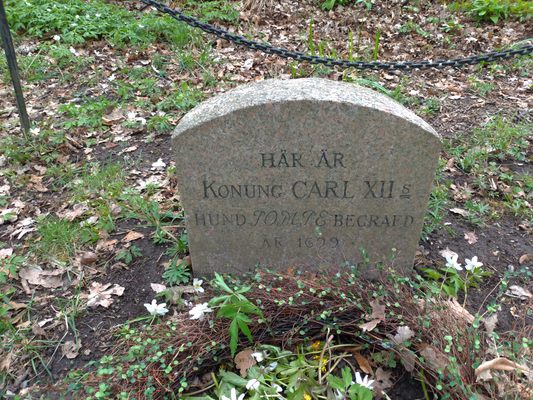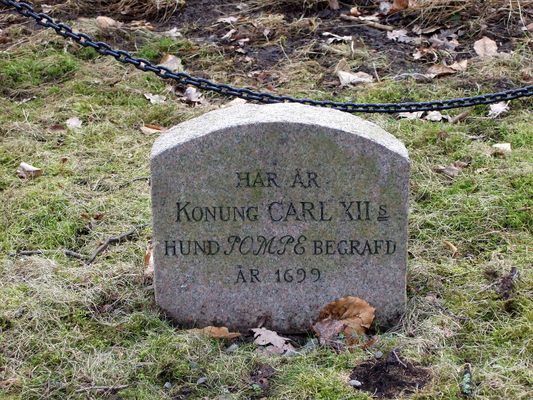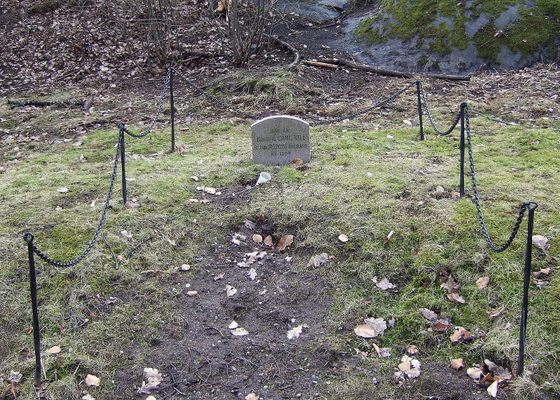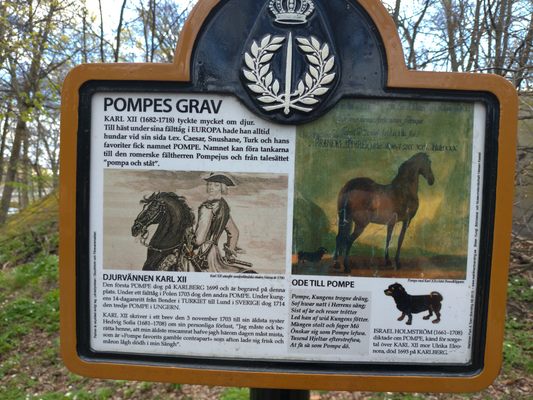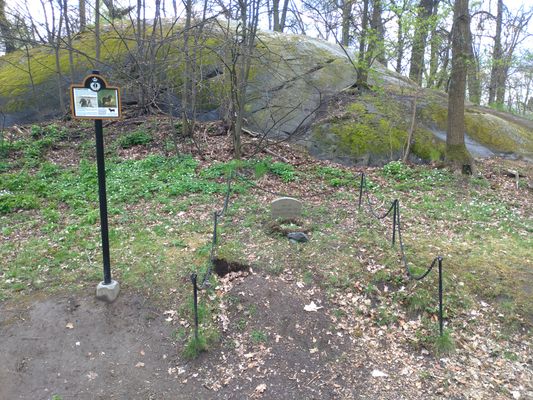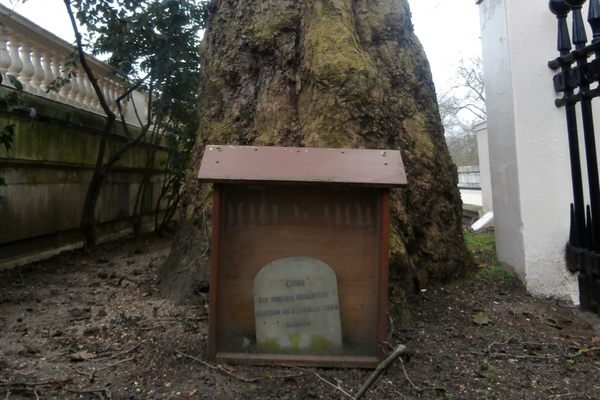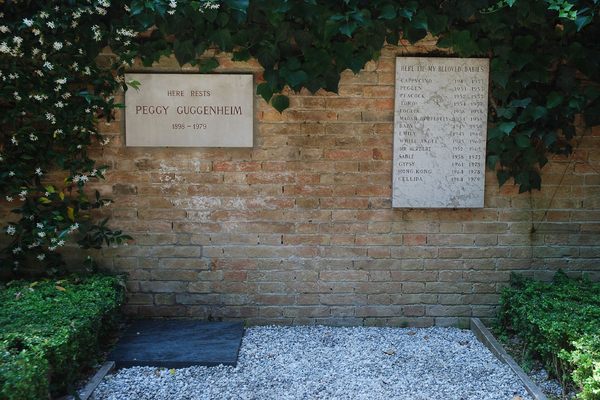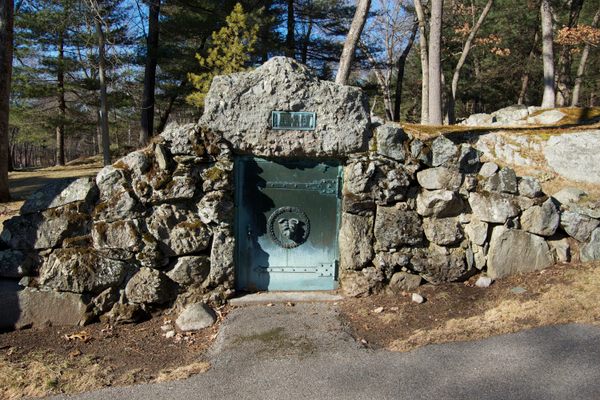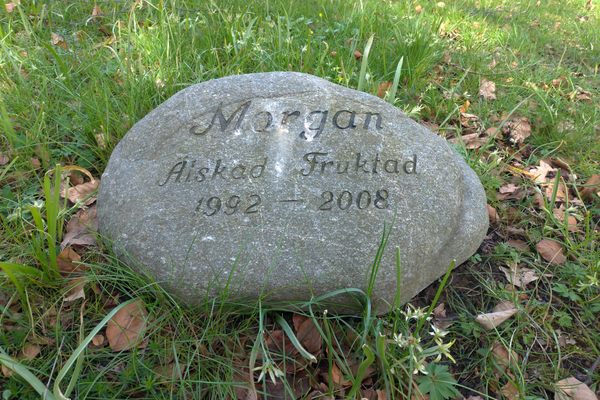About
Although dogs are beloved animals all over the world and across all social standings, it's rather unusual is to bury your four-legged friend in a marked grave next to your royal palace. Yet this is exactly what happened with Pompe, the Swedish king's favorite dog.
King Charles XII, who ruled Sweden from 1697 to 1718, loved dogs and is known for having many of them. But his favorite was a pup named Pompe, named in reference to the Roman statesman Pompey. Oddly enough, there were actually three Pompes in total, as the king would get a new dog and name it the same after the previous one died. But the first Pompe was the most beloved.
When Pompe the first died in 1699 after a long life as a hunting dog, he was buried on the grounds of Karlberg Castle in Solna. His burial site was marked with an inscribed headstone that is still visited today.
After that, the king got a second hunting dog with the same name. This pet survived until 1703 before dying at the army field camp in present-day Poland. The king did not give up after that, though, and got a third dog named Pompe, but sadly that one died too during a drive in Hungary.
Pompe the dog is well known in Sweden (though sometimes confused as the three Pompes are often merged into one) thanks to a poem that was written by the king's general auditor, Israel Holmström, who saw the second Pompe in action during the 1703 field campaign. Translated roughly to English, the poem reads:
Pompe king's faithful boy
He slept in the king’s bed every night
He died at the king's feet
Many proud men and beautiful maidens
Wanted to live like Pompe
Above all, thousands of heroes want
To die like Pompe.
This poem led to many angry reactions, most notably from an anonymous poet who did not accept the disrespectful mixing of the exalted king and the lowly dog. Many alternatives to the poem were made that tried to rectify this, but none became as popular as the original.
Related Tags
Know Before You Go
The grave is in Karlberg Castle Park, accessible to the public during opening hours, daily between 6 a.m. and 10 p.m.
Published
March 25, 2019
